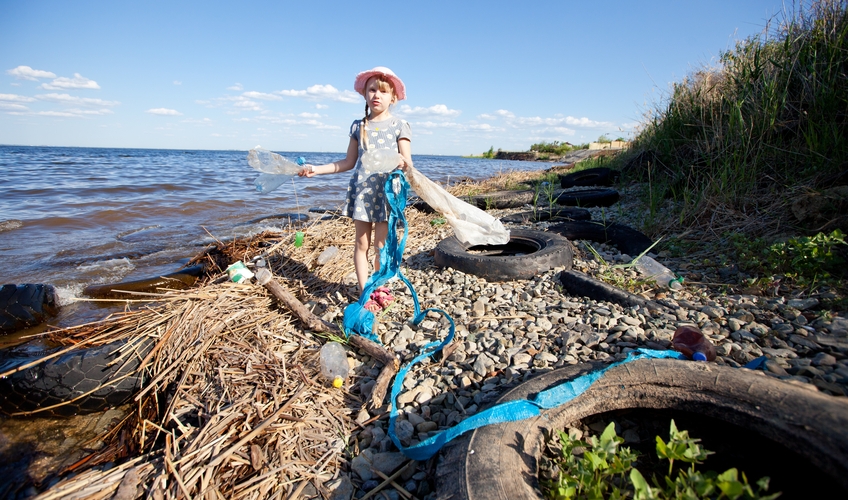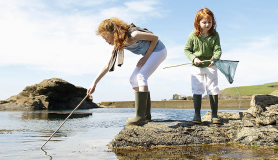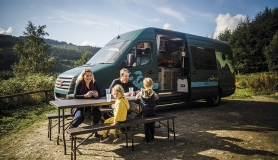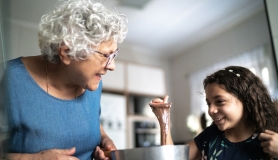Every year over 300 million tonnes of plastic is manufactured; a process that uses 6% of the world’s oil supply. Here in the UK, we use more than 5 million tonnes of this material. But, according to Friends of the Earth, more than 80% of this is used only once. It’s estimated that just over half (57%) of plastic bottles are recycled by households every year. And if it is not recycled, plastic stays with us and, with it, chemicals such as BPA and phthalates which many believe are harmful to human health. It can also take between 500 and 1000 years for plastic to degrade, which means discarded water bottles will be with us for a while longer. Last September the Marine Conservation Society collected more than 8,000 plastic bottles during its annual beach clean weekend; a rise of 43% – on previous year’s results. A recent report by the World Economic Forum claims there are over 150 million tonnes of plastics in the ocean today. If we do nothing about this then by 2050 there will be more plastic than fish in the ocean. At present the Great Pacific Garbage Patch, which contains plastic and debris, is double the size of Texas. For the organisers behind Plastic Free July these are just some of the reasons why a month of quitting plastic is so important. The challenge is simple and can be followed for a month, week, or even a day. Organisers suggest trying to give up the “Top Four” throwaway products, and find alternatives instead to: plastic bags, straws, bottles and takeaway coffee cups with plastic lids. I took the plunge and signed up for Plastic Free July. Little did I know how informative, life-changing, frustrating and challenging I would find it! I decided to concentrate on giving up the Top Four, as well as investigating alternatives to other plastic products.
plastic free shopping
I found this to be one of the most challenging tasks of Plastic Free July. I experimented with organic vegetable boxes, online supermarkets, local shops and a national ethical store to see which generated the least plastic. I shopped with reusable bags, which meant high street shopping in greengrocers and bakers was quite straight forward. Disappointingly, my veg and meat box and ethical store deliveries came wrapped in plastic. My online supermarket delivery actually contained less plastic as I scrutinised the packaging details before ordering.
eating and drinking
I used a portable drinks bottle and took a cloth napkin and teaspoon to avoid disposables when out and about. When I did end up with a takeaway coffee I refused the plastic lid. While I had decided that Plastic Free July was my personal challenge there were, inevitably, some decisions that impacted on the rest of my family. For example, my children gave up plastic straws and we only purchased drinks sold in glass bottles. >
Could you go Plastic Free for a whole month? JOIN US at facebook.com/greenparentmag
I took advantage of the Plastic Free July challenge to learn from other participants about more plastic-free alternatives. I purchased my first packagingfree toiletries from Lush and learnt about plastic in teabags.
the campaigning bit
I also wanted to lend my voice to the campaigns that question our use of plastic. Having learnt about the plastic that is used to form teabags I emailed manufacturers. I contacted a supermarket about packaging misinformation and challenged my veg and meat box provider on their use of plastic. I also made sure to thank those manufacturers who use plastic-free packaging.
plastic free july legacy
I personally found that taking part for the whole of July was a challenge, especially when the school holidays arrived. Every outing had to be planned for with reusable cutlery, filled bottles, homemade snacks etc to reduce our reliance on plastic. However I picked up some habits from the challenge, which have stayed with me. We have a milk delivery in glass bottles; I use my grocery produce bags and refillable water bottle regularly; I also shop for packaging free toiletries and the humble soap bar has become a staple in our house. I’ve also continued to campaign and sign petitions such as keeping glass milk bottles and banning plastic microbeads. Living without single use plastic for an entire month was hard. I needed to plan more to avoid this material that is so prevalent in the 21st century. Thankfully there are some inspirational campaigners out there who are blazing a trail into a plastic-free world.
Beth Terry has been plasticfree since 2007 and writes on her blog My Plastic Free Life. The American activist is also author of the popular book, Plastic-Free: How I Kicked the Plastic Habit and How You Can Too. Here in the UK, Kate Armstrong is the British blogger behind Plastic is Rubbish which is packed with useful information and campaigns. She went plastic free in 2006 having noticed a plastic bag permanently hanging in a tree. On the other side of the world Lindsay Miles writes the blog Treading my Own Path and is author of e-book That’s A Wrap – the eGuide for Plastic-Free Living. For regular inspiration try Plastic Free Tuesday, a weekly campaign to quit plastic. What I learnt from Plastic Free July is that recycling the occasional bottle isn’t enough. We need to refuse the throwaway plastic, and adopt reusable alternatives, to avoid this material that is now covering every corner of the globe and won’t go away.
more inspiration
JOIN Plastic Free July plasticfreejuly.org
CHECK OUT Plastic Free Tuesday plasticfreetuesday.com
CONNECT Join in the challenge at facebook.com/greenparentmag







